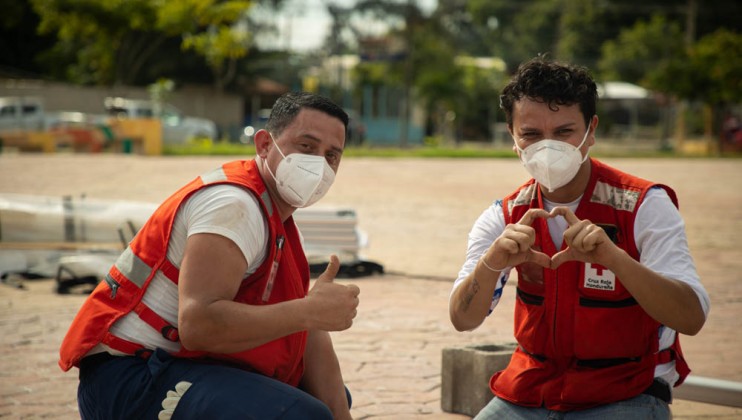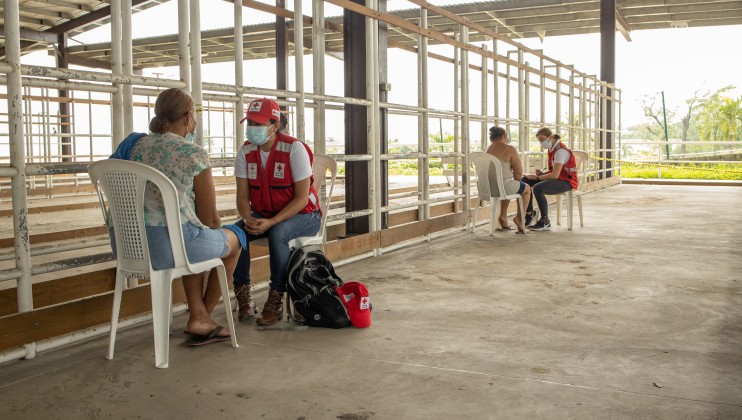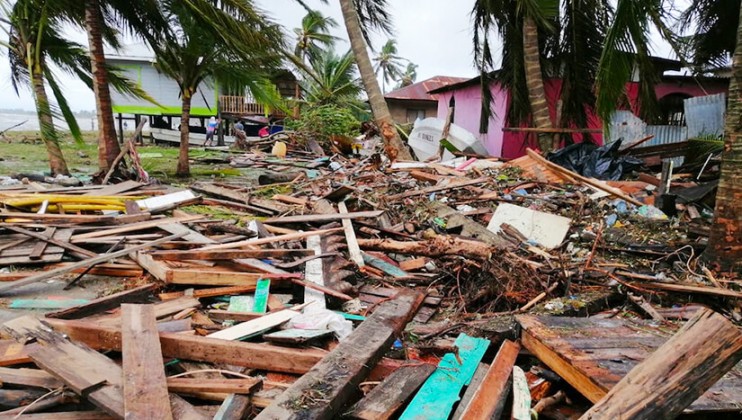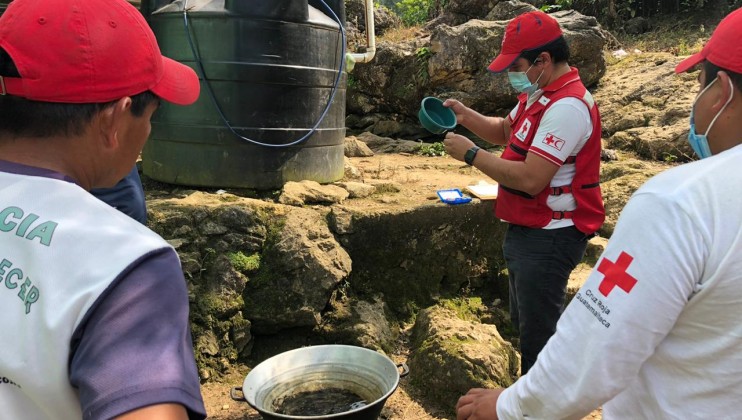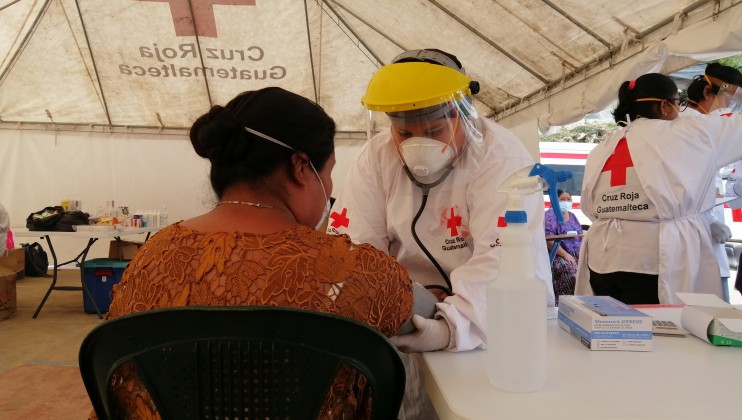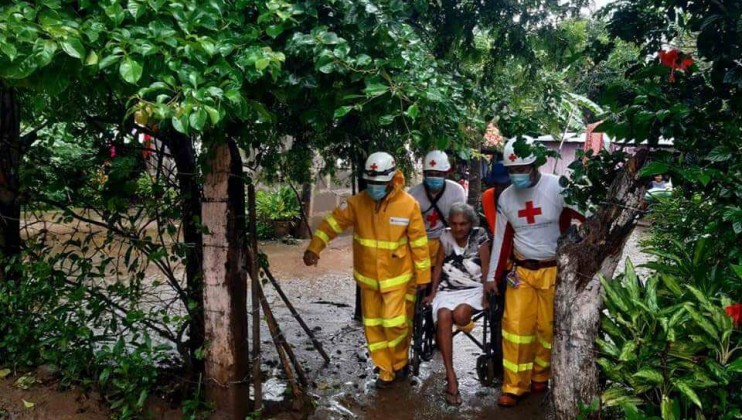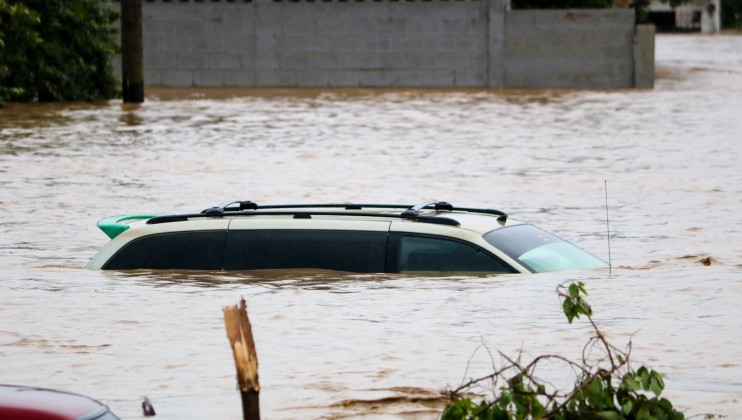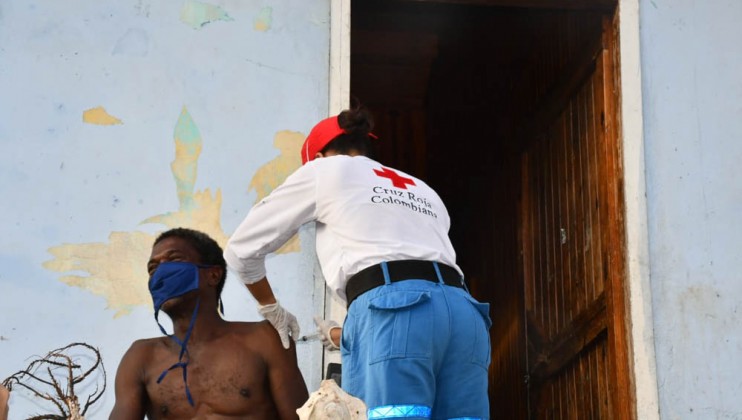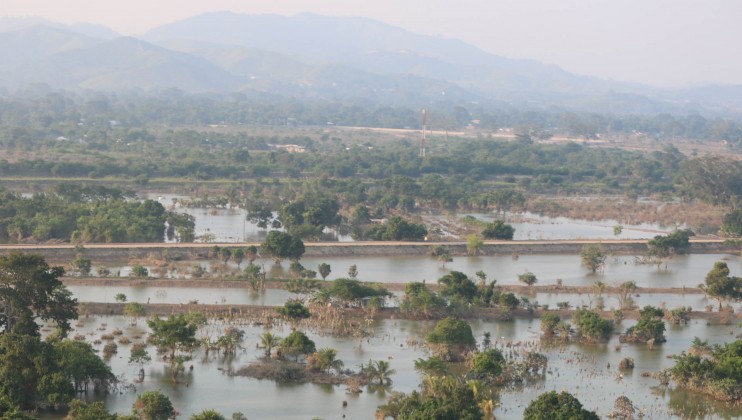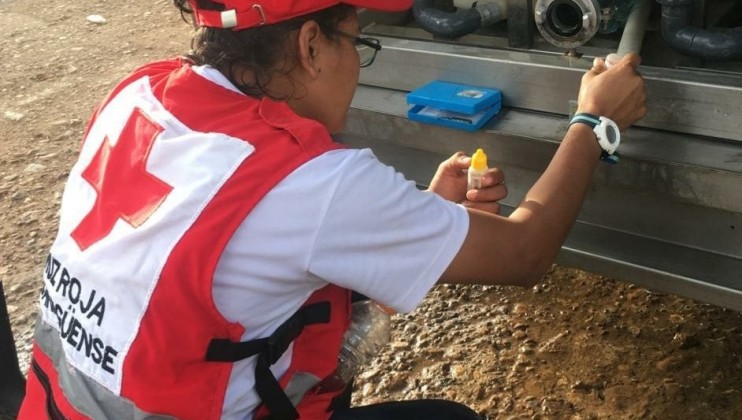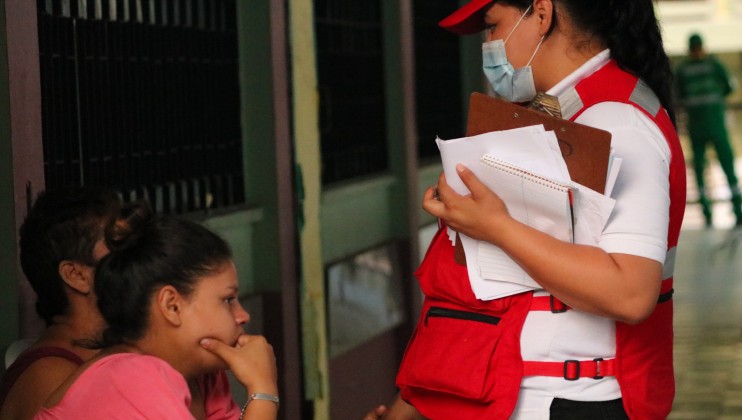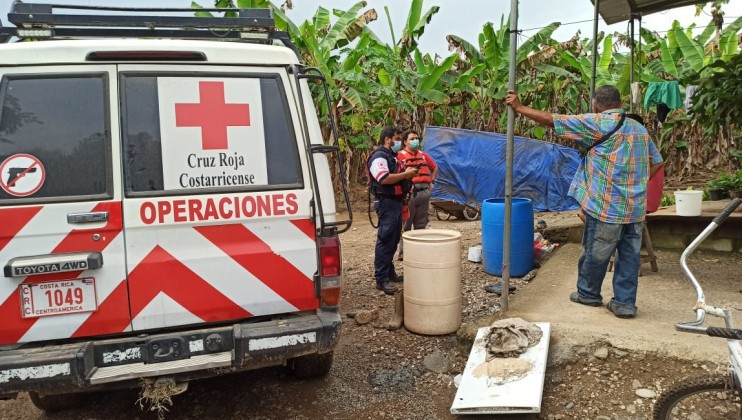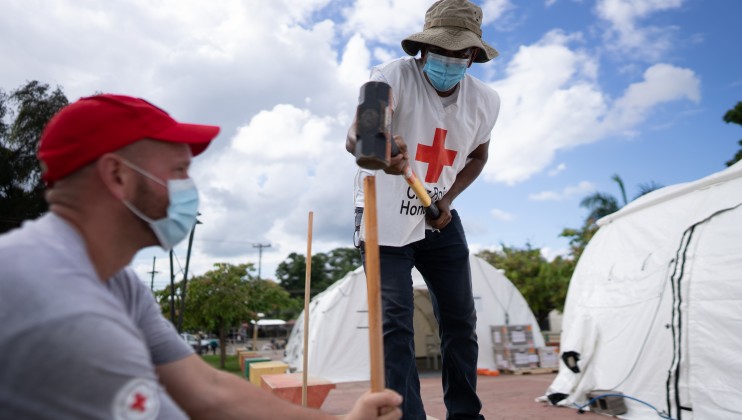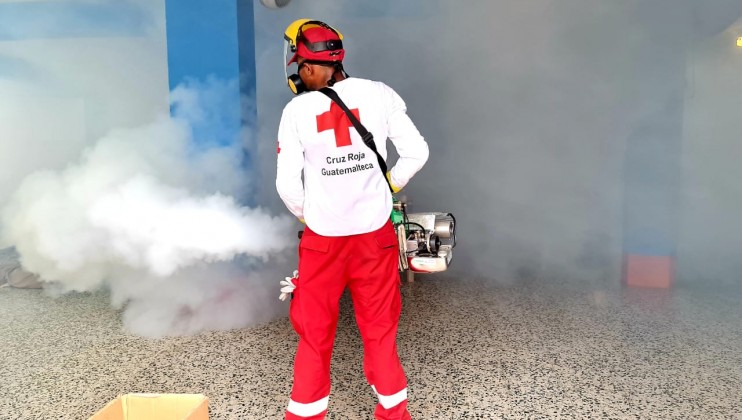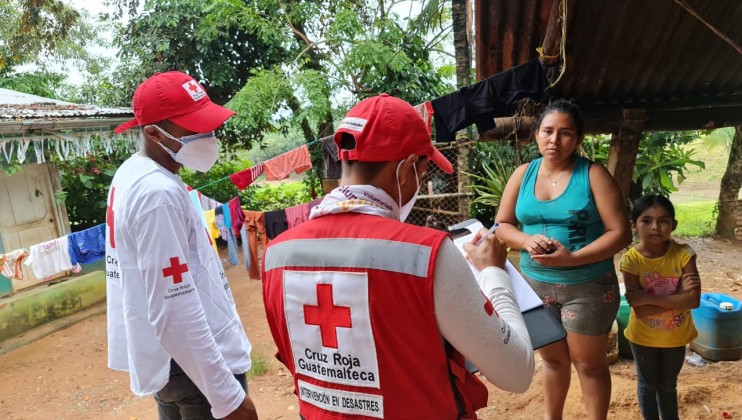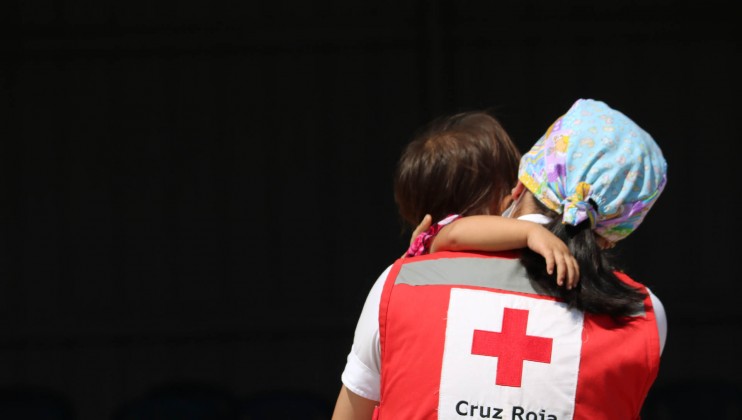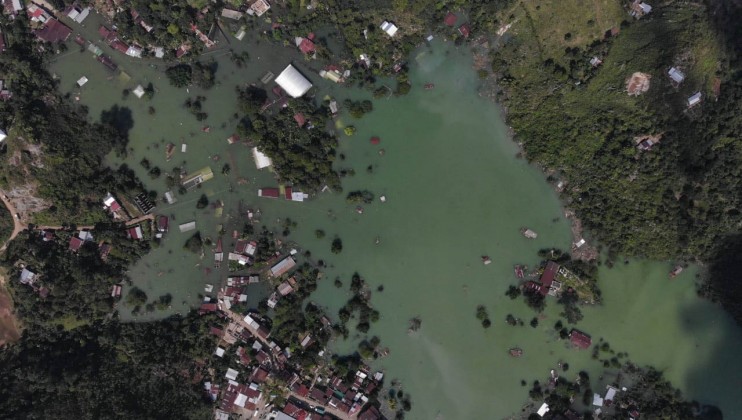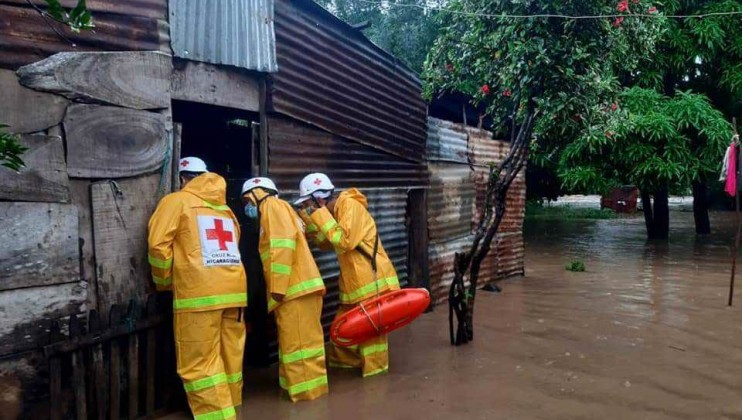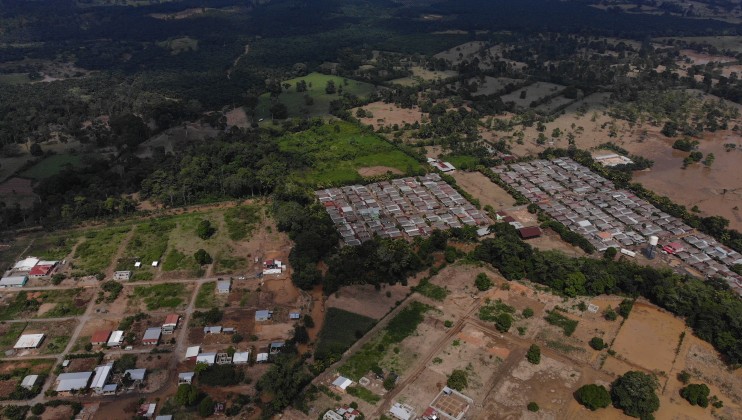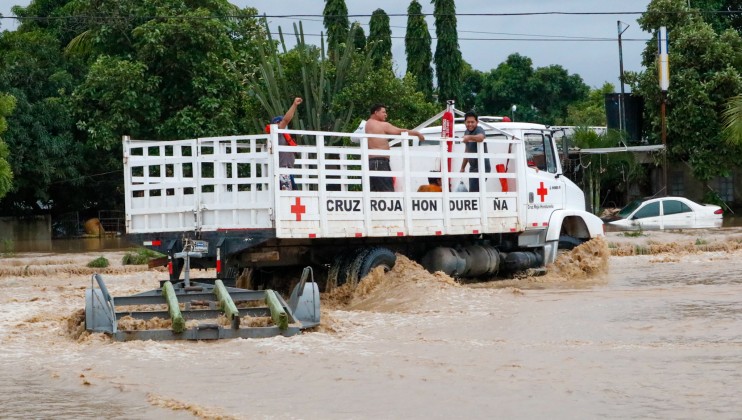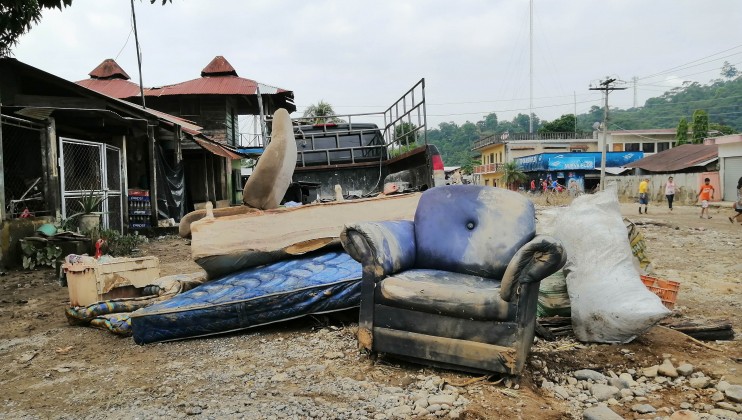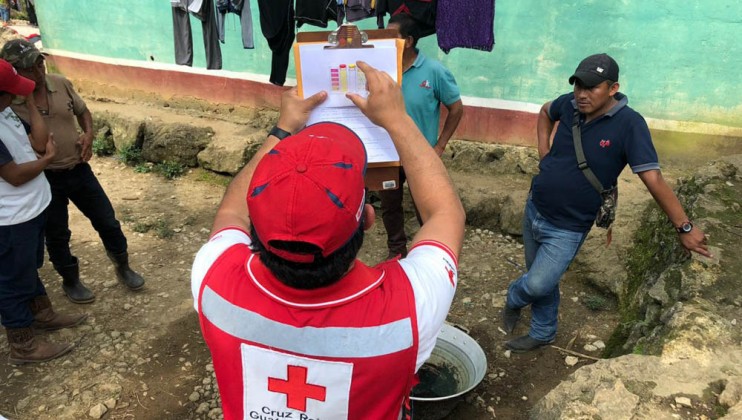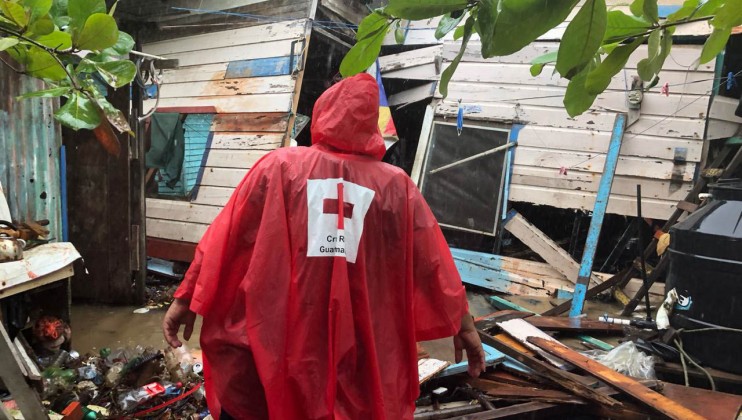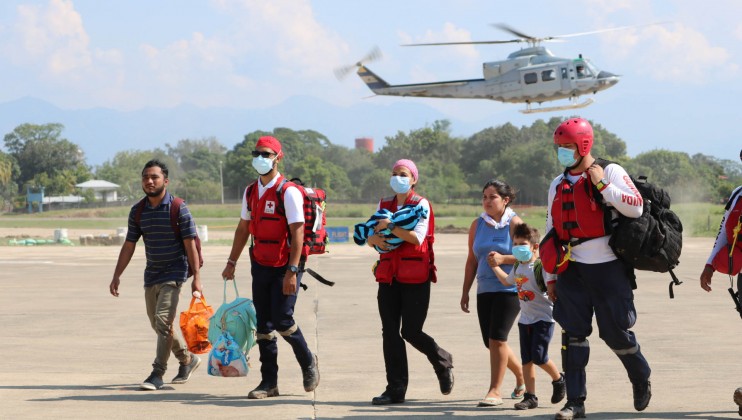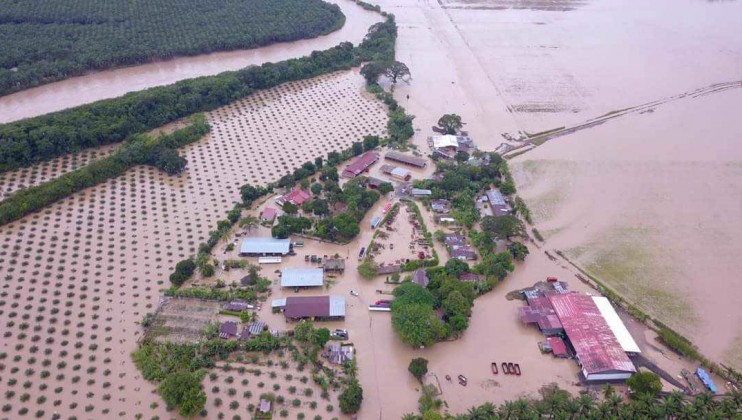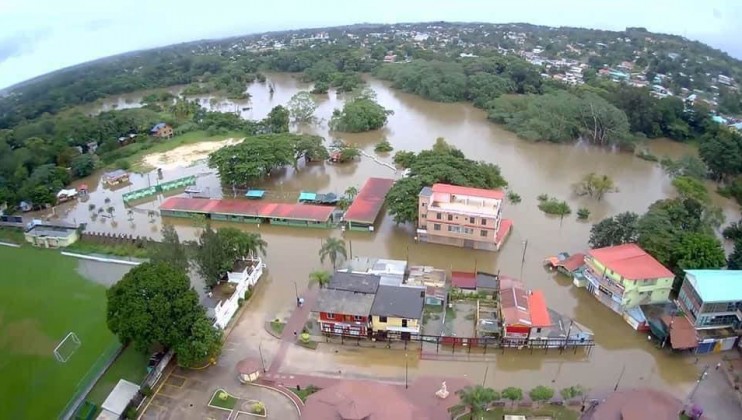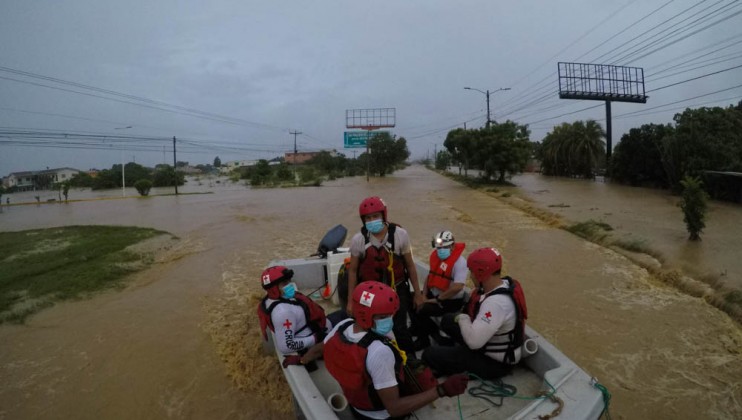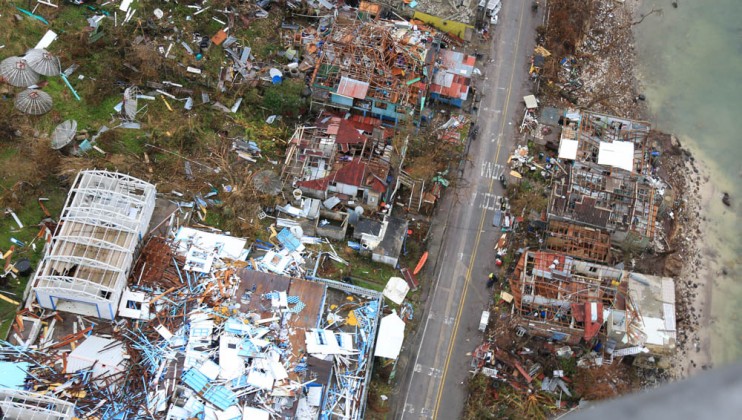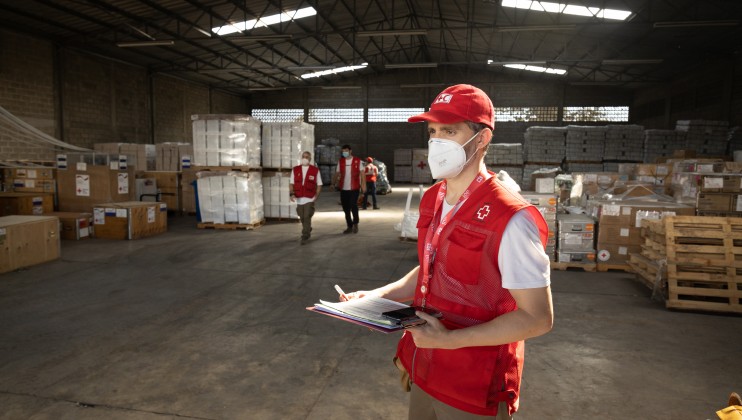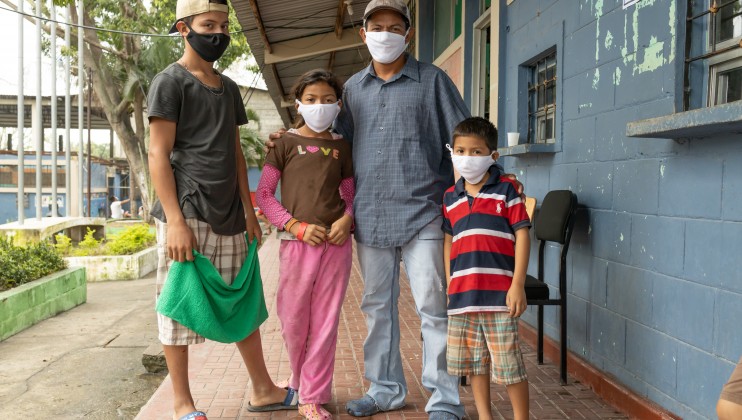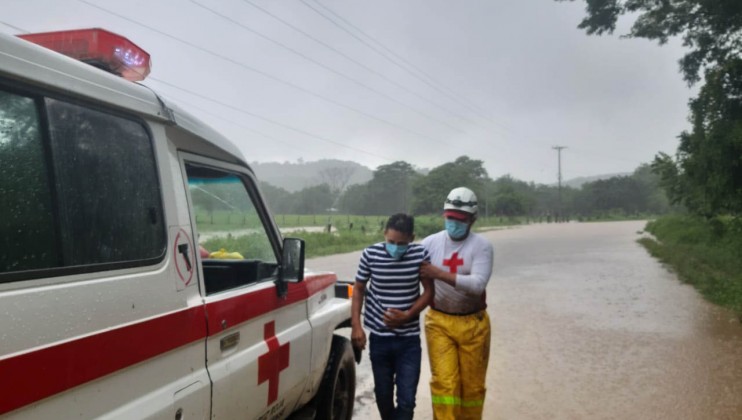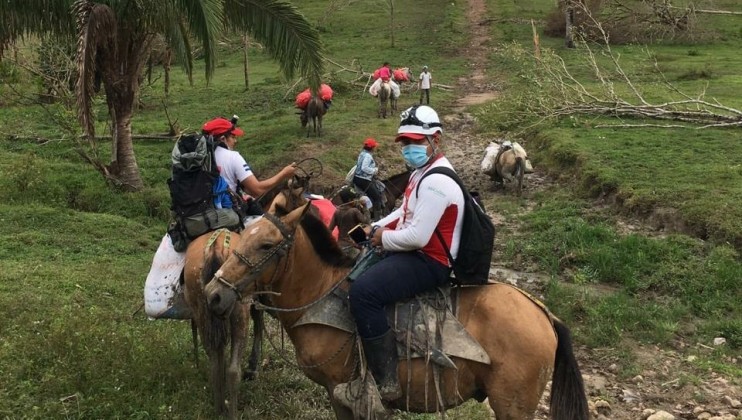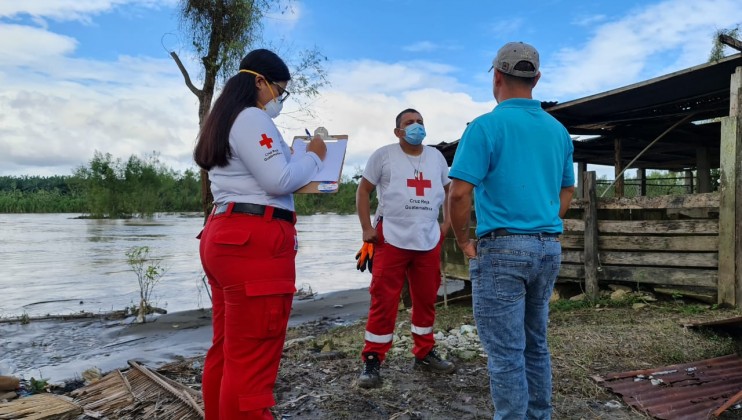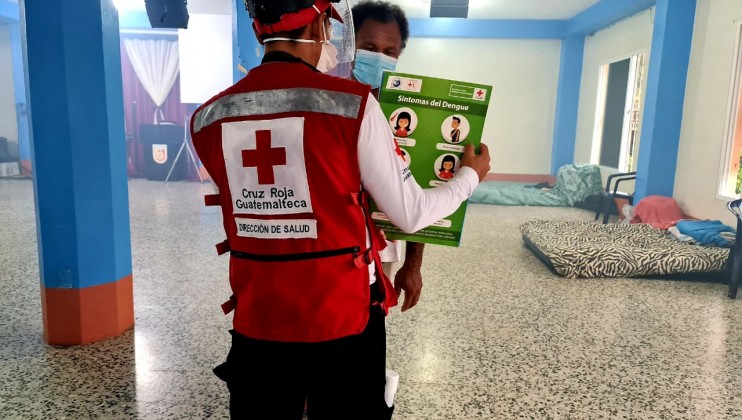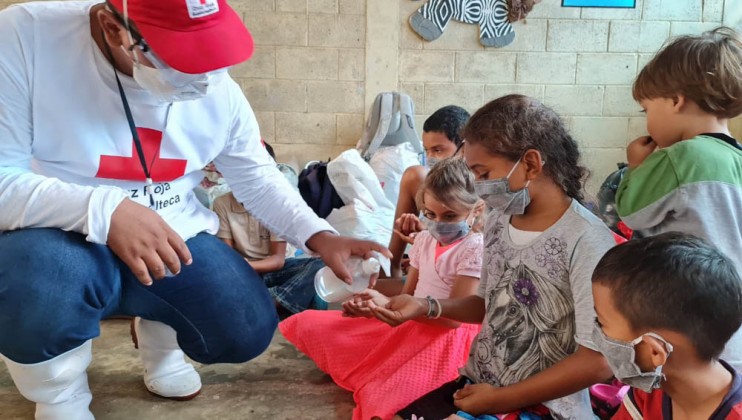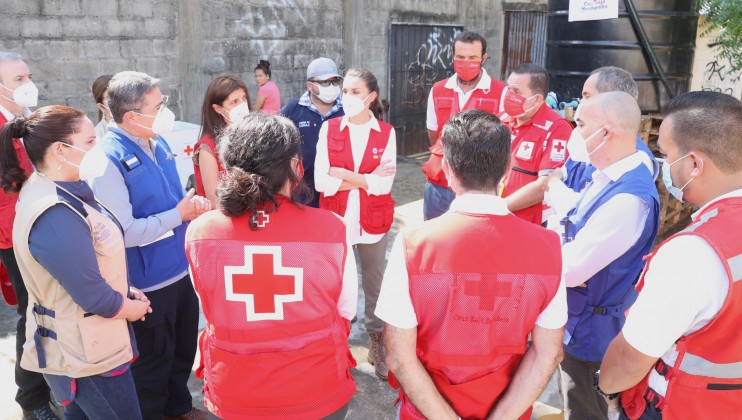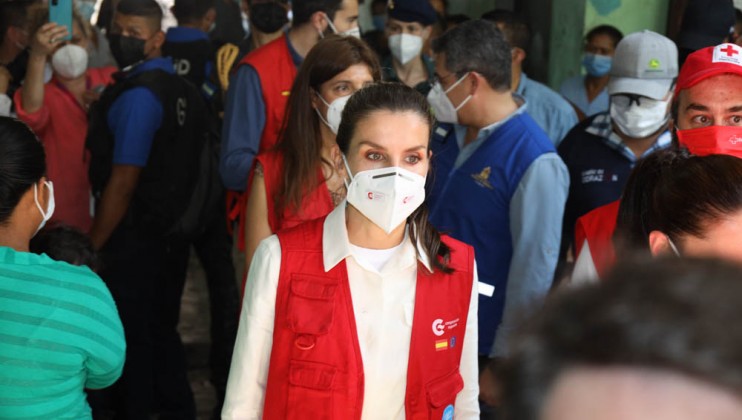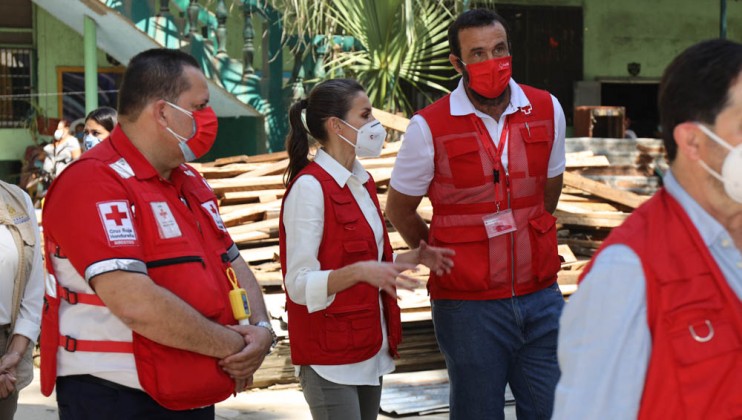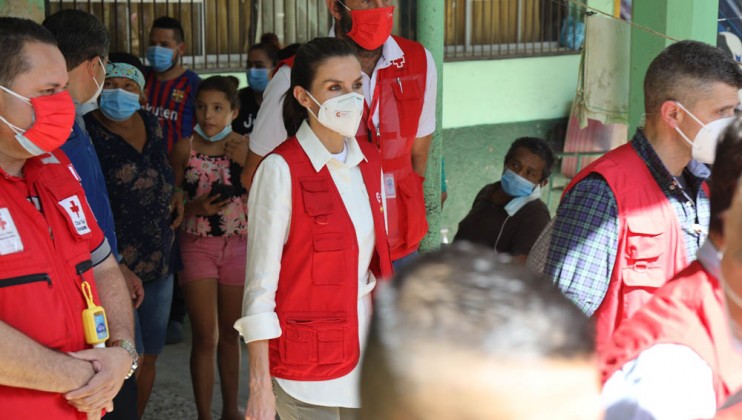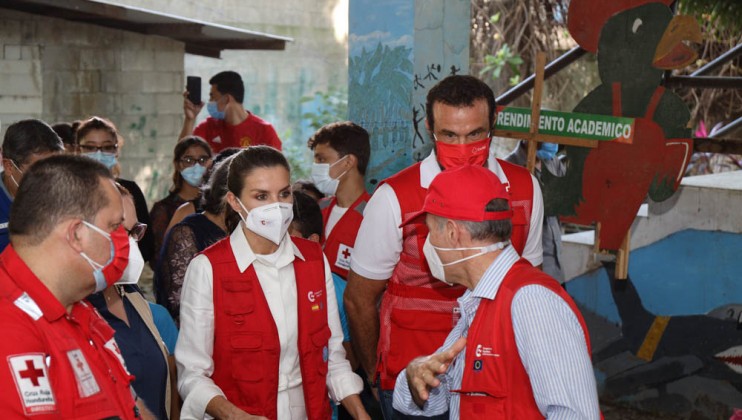Red Cross: Humanitarian response to hurricanes Eta and Iota one of the most challenging faced by Central America in decades
Panama/Geneva, 14 December 2020 – One month after hurricanes Eta and Iota hit Central America and Colombia, affecting more than 7.5 million people, the International Federation of Red Cross and Red Crescent Societies (IFRC) warns that millions are still in need of immediate humanitarian support in what has become one of the most challenging disasters faced by the region in recent history.
The IFRC and National Red Cross Societies are currently addressing the most urgent needs of over 100,000 people through seven simultaneous humanitarian operations in Colombia, Belize, Costa Rica, Panamá, Guatemala, Nicaragua and Honduras. The situation is especially severe in Nicaragua, Honduras, and Guatemala, where more than 6 million people have been affected by heavy rains, floods, and landslides. In-depth damage and needs assessments are ongoing but results from all rapid assessments conducted so far paint a bleak humanitarian picture in both the short and medium term.
Felipe del Cid, Head of the IFRC’s Disaster Response Unit in the Americas, said: “Millions of people still need immediate humanitarian support: shelter, health care, psychosocial support, access to food, clean water, sanitation, and hygiene facilities. We are talking about a huge disaster, exacerbating an already ruinous combination of COVID-19, poverty and inequality in the region. These overlapping crises are making our operation one of the most complex we have ever mounted. The support of the international community is urgent to protect lives and livelihoods”.
On 8 November, the IFRC launched an Emergency Appeal for 20 million Swiss Francs to assist 75,000 of the worst affected people in Guatemala, Honduras, and Nicaragua for at least 18 months. Currently only 58% funded, the appeal focuses on rebuilding and repairing damaged shelters, improving access to clean water, sanitation and hygiene facilities, addressing health needs, including COVID-19 prevention measures, and providing psychosocial support. The operation will also seek to address the mid-term consequences, such as the hurricanes’ impact on livelihoods and displacement.
“Eta and Iota have wiped out livestock, destroyed tools, harvests and farming areas, and impacted popular tourist spots across a region that was already facing an economic crisis related to COVID-19 and where the incomes of thousands of families had already been severely depleted. People are at risk of resorting to coping strategies such as selling their animals and properties, eating less food, and abandoning their homes to look for new ways of generating income”, added del Cid.
History has shown that hurricanes can cause displacement influxes as the loss of housing and livelihoods fuel unemployment and lead to increased movement of people to urban centres. Eta and Iota also represent a challenge for returned populations. In Guatemala and Honduras, some of the areas hit hardest have also welcomed large groups of returned people whose journeys have not ended in the way they expected. Figures on unemployment, poverty, and vulnerability were already high due to COVID-19 and will very likely deteriorate due to Eta and Iota.
For more information or to arrange interviews please contact:
In Panama: Susana Arroyo Barrantes, susana.arroyo@ifrc.org , + 506 8416 1771
In Honduras: Johannes Chinchilla, rrcomms.honduras@ifrc.org , +504 99031797
In Geneva: Rebecca Cole, +41 79 245 56 80, rebecca.cole@ifrc.org
About IFRC
IFRC is the world’s largest humanitarian network, comprising 192 National Red Cross and Red Crescent Societies working to save lives and promote dignity around the world.
www.ifrc.org - Facebook - Twitter - YouTube
